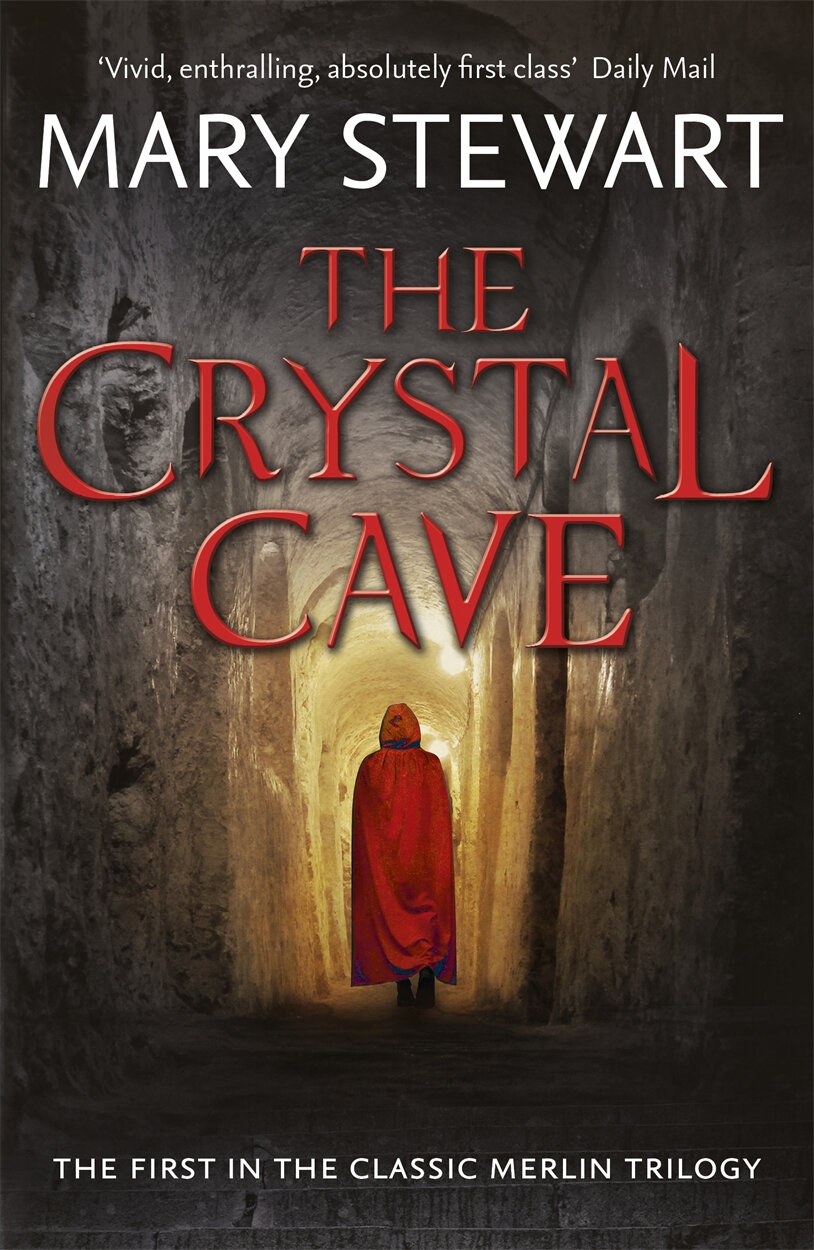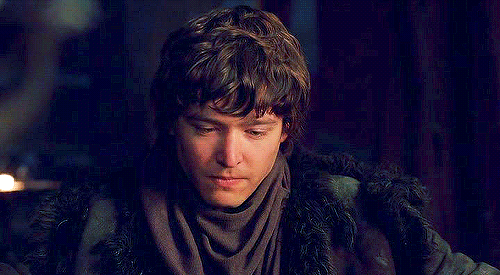On ye boi, Mordred
Still of Mordred in Merlin (BBC, taken from Chicago Tribune)
Ooh boy, I have been waiting a long time for this. Strapple on in, because apparently it’s up to me to explain just why this tragic Arthurian figure deserves oh so much better.
What I’m Reading: The Crystal Cave (Mary Stewart, Peerage Books)
What I’m Watching: Now no longer, but huge shoutouts to Handmaid’s Tale (Hulu) for an astonishing fourth season. I’m still screaming over that oh-so-satisfying finale.
Okay. So, I won’t lie, I’m a bit bitter about Arthurian films and movies because so few of them do justice to one of the most extraordinary mythologies in— well, ever. One of my favourite adaptations, BBC’s Merlin, is only good if I do a complete separation of legend to on-screen because, accuracy-wise, it’s ghastly. It’s a fantastic show, but faithful? Excuse me while I yeet myself out a window. Why do I mention this? Well, other than being, you know, bitter about not having many fist-raising quality adaptations, it ends with the classic “Medraut/Mordred turns evil and ultimately kills Arthur” shindig (side note — I’ll be using the Medraut spelling from here on out). It’s that standard rodeo for adaptations that he’s either Arthur’s nephew or son and is twisted by various evil womanly figures such as Morgawse or Morgana, resulting in both him and Arthur killing one another at the battle of Camlann. And as of yet, I’ve not found one where that isn’t the case.
So, you say, as you’re obviously as intensely focussed on this as I am, the source material for one of the legend’s longest-lasting constants is direct, clear as day, undoubtedly vilifying Medraut for all time. And there is very explicit source material connecting Medraut, Arthur, and death at the Battle of Camlann. It’s found in the greatly important Annales Cambriæ, a tome I procured a copy of… only to realise it was entirely in Latin. Of course, I have a good friend in Google Translate, the be-all, end-all of legit and 100% accurate translations, and this is what I got:
537. The Battle of Camlann in which Arthur and Medraut fell, and there was devastation in Britain and in Ireland.
It’s decided! Huzzah!
It’s… clear as all heckety?
Hence my frustrations. The one go-to for everyone making Medraut a baddie says nothing of the sort. The actual truth, the real gig, is enough influential people of the then were pessimists. Dummy dumms, even. Hungry for a solid villain. And hey, I’m down for a good villain. Some of my favourite characters are of the evil agenda. And having the great Bear of Britain’s own child (or nephew) be his demise? I can see the appeal. The problem here lies in not one person suggesting otherwise. He’s ultimately evil 100% of the time.
(Sidenote, I have yet to read 100% of all Arthurian literature, so I can only vouch on my understanding. If you know a story where he’s not responsible for Arthur’s death, please send it my way.)
I also concede half my irkedness lives in the plethora of irkedness over Morgan le Fay and Guinevere being made into not-good guys. Oh, the characters sacrificed for the survival of the legend. How I mourn thee.
Heck, the book I’m reading at present, Hawk of May, shows us how Medraut becomes a baddie, twisted by his mother, Morgawse. And seeing it happen isn’t going to have me turn my nose up with a harrumph and a, “This stinks!” But, as I said, the idea is solid, easy drama into which writers can really sink their teeth. I personally love the idea of taking a character and watching them succumb to their darkness. Anti-redemption arcs aren’t especially common, but when they’re done well, it’s just… *chef’s kiss*.
And holy moly, I just learned he even shows up in Dante’s Inferno, tucked within the Ninth Circle of Hell, that which lives for traitors. I’ve had that book on my shelves for how long?
Admittedly, it’s also not as black and white as I make it out to be. In BBC’s Merlin, they show his potential and desire to be heroic, doomed only when he loses the one he loves. More recently, authors are more likely to be found playing with a grey Medraut, a complicated character who seems to want to be good but loses his battle with the dark. However, I did enjoy his rendition in Kiersten White’s The Guinevere Deception. I had only one problem with it, and that was in the distinct dramatic irony. We know he’s obviously going to be the antagonist in the end, and so we spend all our time waiting for the big reveal. Everything else, every attempt at heroism or loyalty, we disregard in waiting.
But here lies the question: what if he was good?
I’m also using solely Merlin gifs here, as I do genuinely love the show, and I will ship Merthur to the day I die.
What if he had that darkness, that penchant for anger and hatred, and he overcame it? What if, after all those calls to the world of antagonists, he fought back and won? What if, when the Battle of Camlann came, he fought at Arthur’s side?
I pose these questions, but I’m the only one on this Medraut-deserves-better island I’ve found. I don’t doubt there are others here, complete with stunning caves and thatch-roofed cabins they’ve built for themselves, but they’ve yet to land in my peripheral vision. Legit, though, I am so starved for this that it seems I have to do this myself. I’ve thrown up my arms, and I’ve built what may be one of my book’s most interesting characters. Is it as easy as having him stand against Arthur when the time comes? No. I could add a nice sticker to this house of Medraut and call it a day, but I have a negative interest in that, as much as I love stickers. I want a Medraut we watch battle outstanding odds, the likes of which we’ve seen 3,000 times before, but rise above at the other side and be a better man.
I mean, maybe I’m the only one, but how cool would that be?
I do genuinely hunger, though, for something new. I really enjoyed Once and Future by Amy Rose Capetta and Cori McCarthy, and to an extent, the aforementioned The Guinevere Deception for trying different things. So much of the mythos has undergone considerable transformation over the centuries, while characters like Medraut get “tragic, still evil” as the extent of his chameleon-ness.
So, yeah. I’m over evil Medraut. I’m in the front row of the “Medraut gets to be a good guy for fucking once” concert. Free seats for everyone!
But that’s all from me this fine Friday. My current plan is to dive in, next fortnight’s Friday, one of the mythology’s most enigmatic, evolutionary, and enduring figures the lore has known. I hope to see you all then, but until then, may your day be most fantastical!
— Charis.




